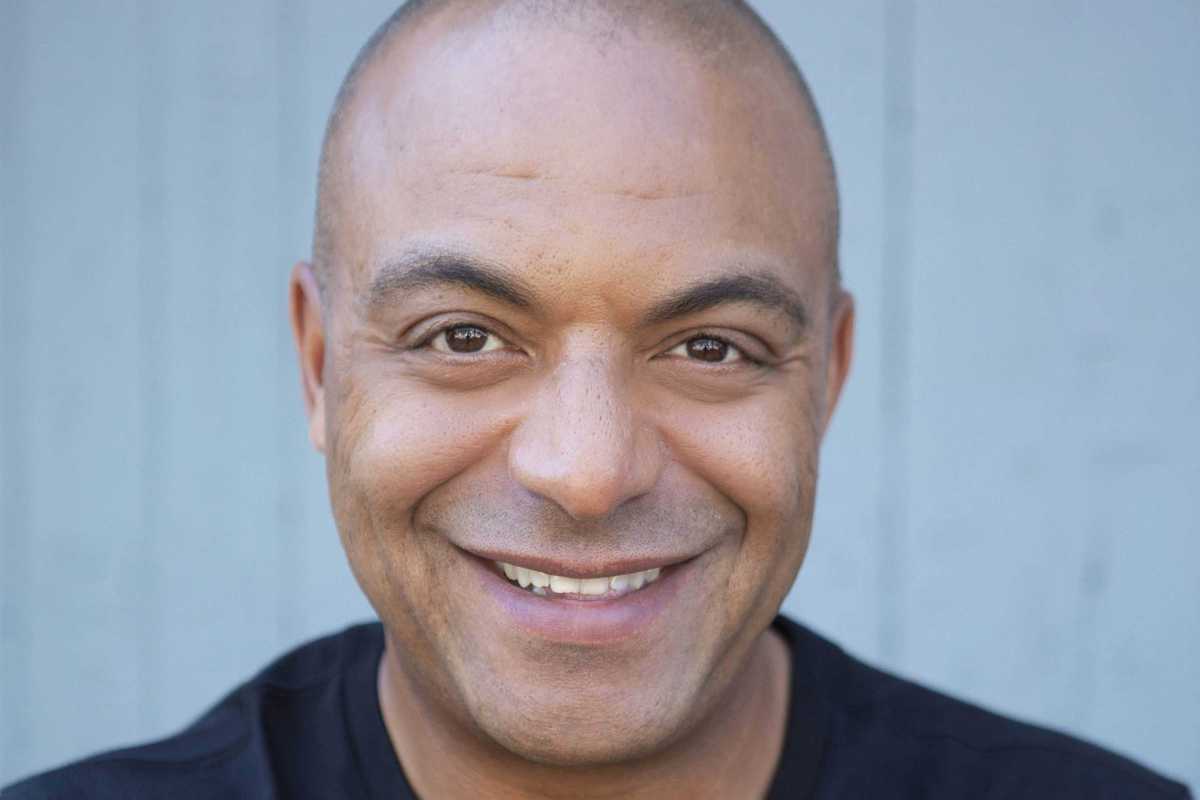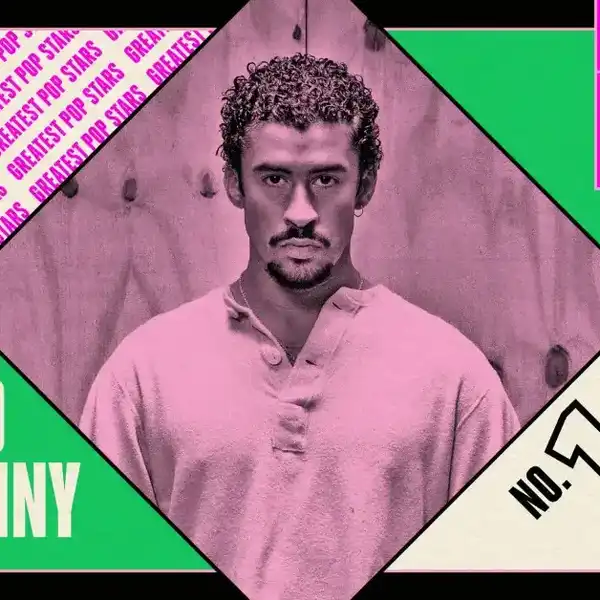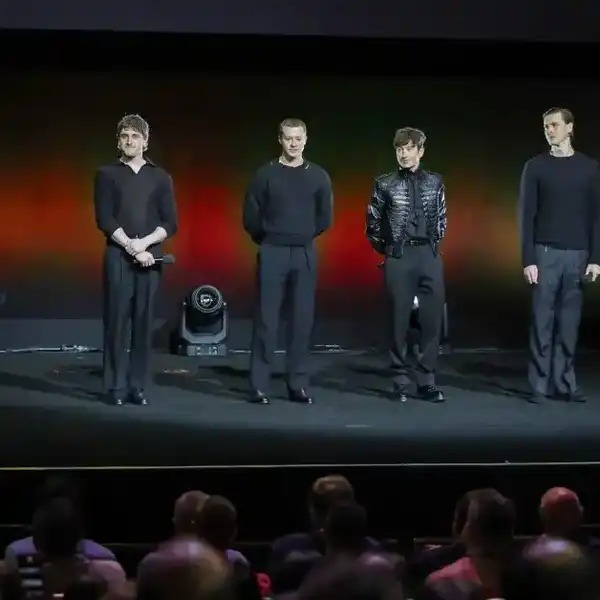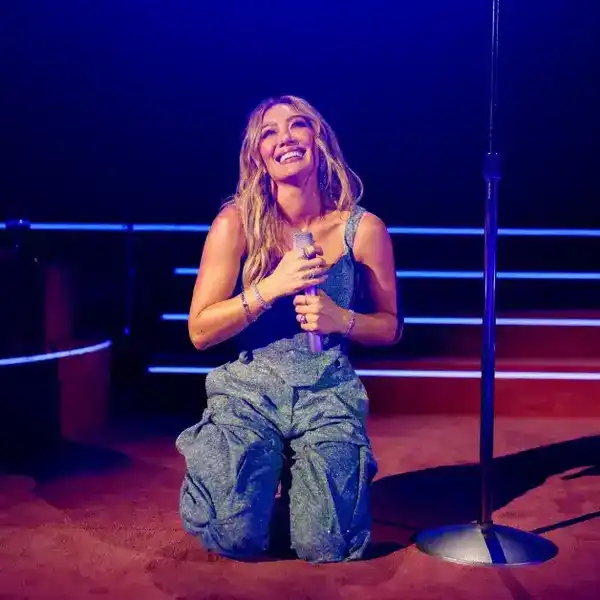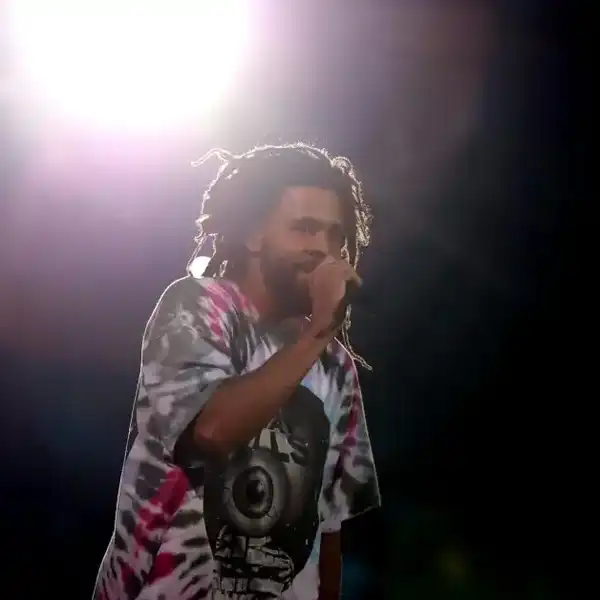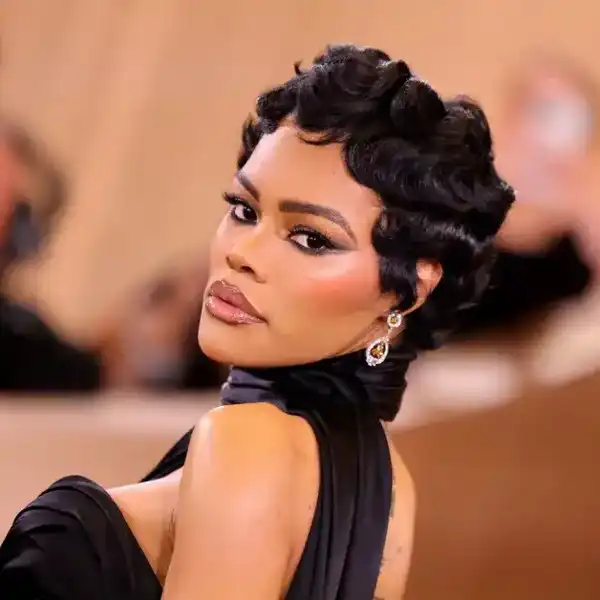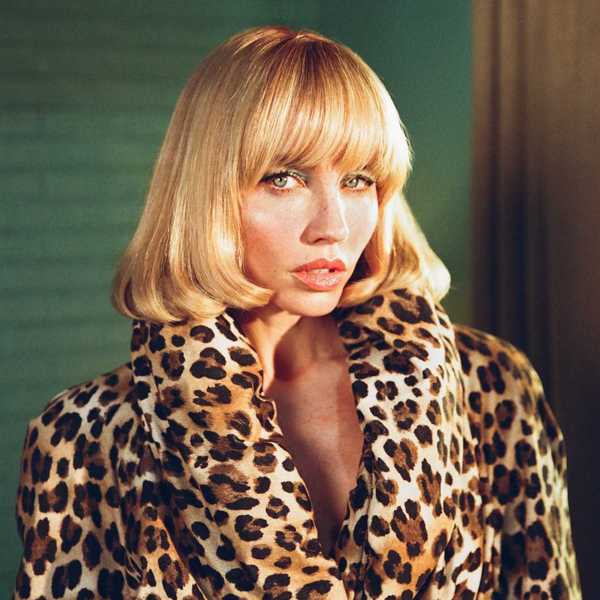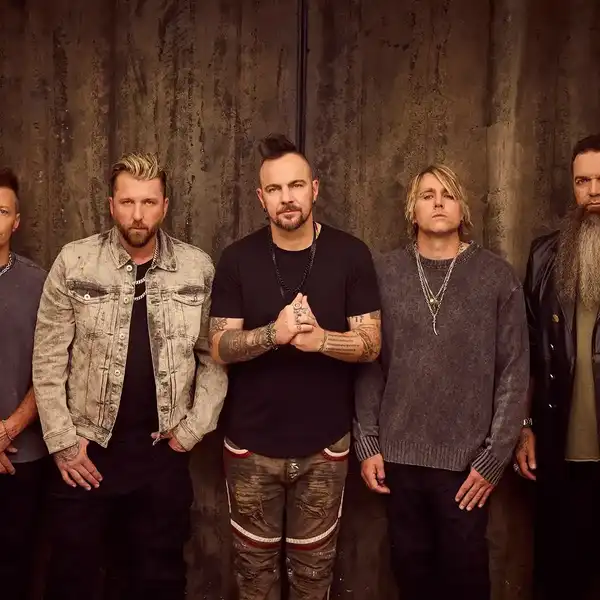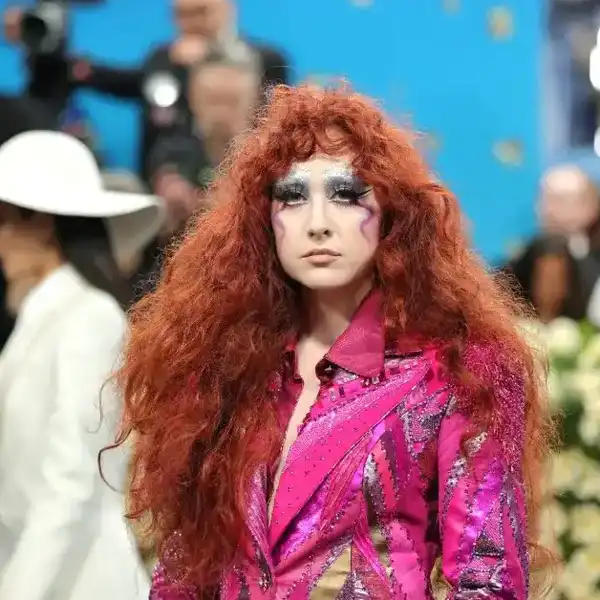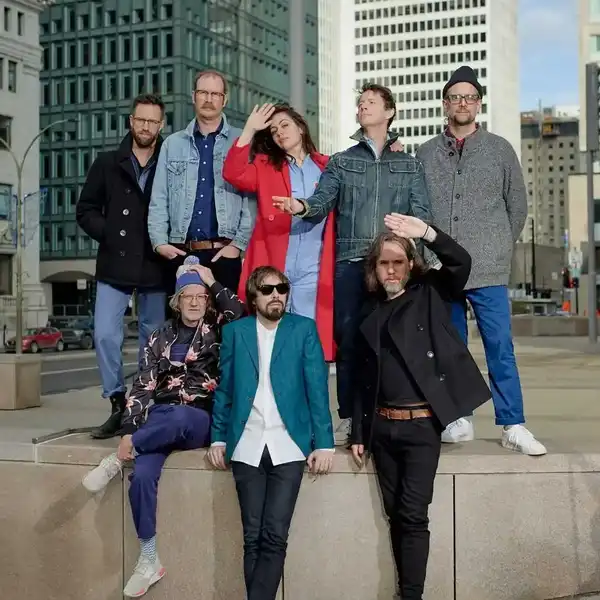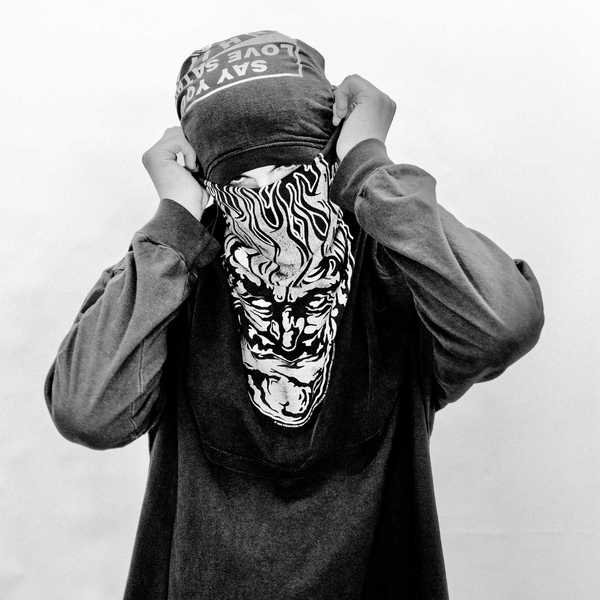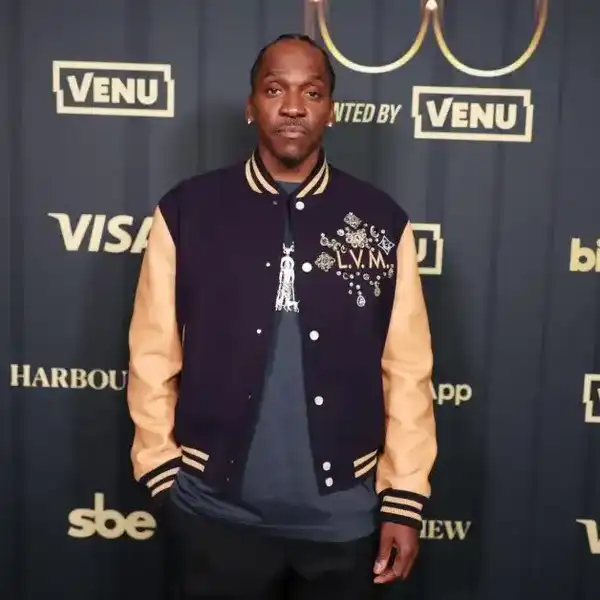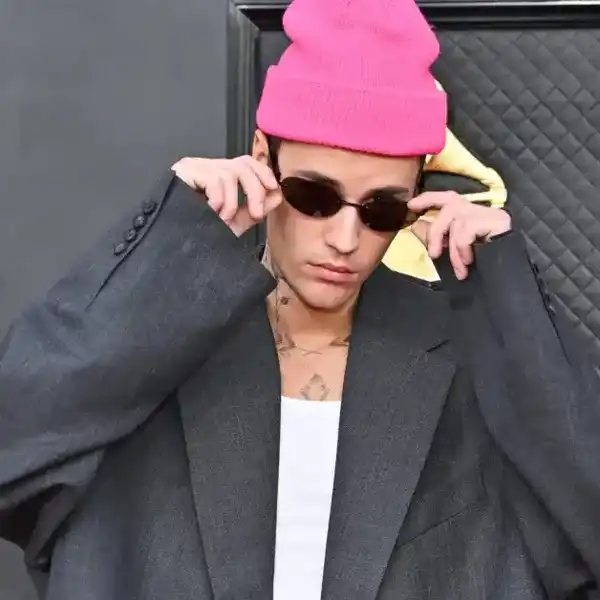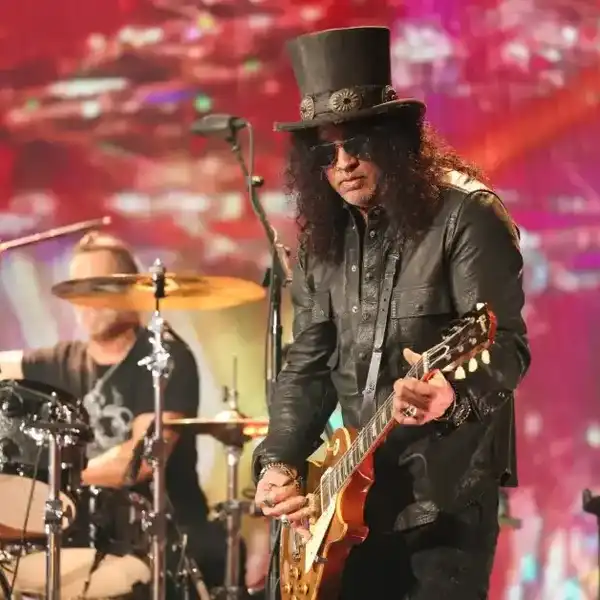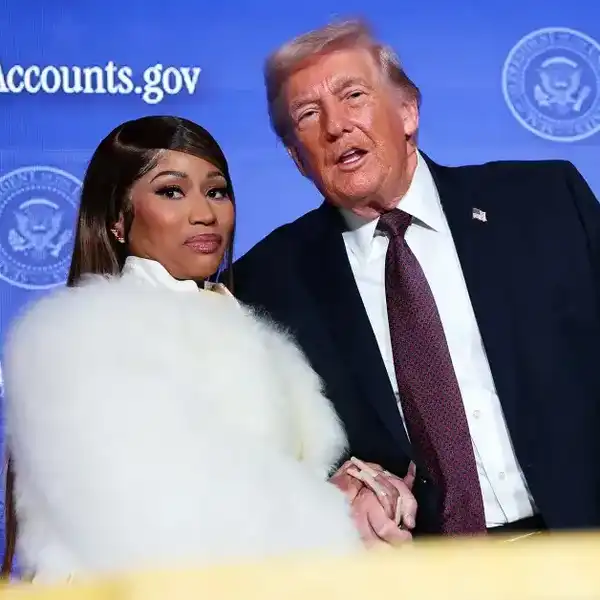A Conversation With ... Royal Wood
In this far-ranging interview, the Ontario singer/songwriter discusses organic farming, his family's love of music, Tim Buckley, the importance of words, and the thrill of headlining Massey Hall.

By Bill King
Your home town, Lakefield, Ontario – college town?
Yeah, Lakefield College School is there, and it's also sort of a centre for a lot of great hockey players in the world as well.
And the family farm is there?
Yes. We had a farm growing up, a cattle farm and a hundred and eight acres that went dormant when I was a teenager. They got rid of the cows and tried to keep it as a hobby farm. And then I bought it a few years ago.
My dad got sick, and they were going to get rid of the farm, and I wanted to keep it for the family. I wanted it for my dad in his final years. I have it and have turned it into an organic farm and gave it to a bunch of young, idealistic farmers to run for me. There are also rescue horses there.
Do you spend much time there?
I spend as much time as I can. When my dad was sick, I was there as much as humanly possible. He passed away about a year and a half ago. So, I'm there a little bit less. I have a condo in Toronto with my wife, and I’m always on the road. But, we make regular plans to be there even if it's just for a night.
It’s now an organic farm. How far away is produce distributed?
Just in our region. It goes into Lakefield and Peterborough markets.
What’s grown there?
Anything that can. They try to keep it seasonal and knowing it’s organic, they're doing every possible procedure they can without breaking their rules. They've introduced us to a lot of vegetables I had never even seen before.
You must go there and think, ‘wow’, look what they have done with this land.
I do go there and am ‘wowed’ when I look at what they’ve done. But I also go there and think, ‘wow, so much work’. Farming is hard enough as it is. And even as a kid growing up seeing farmers - but that was industrial farming and seeing what goes into organic farming the way it should be done is even more toilsome now.
I remember the massive flooding in Lakefield. An online search says, 2004?
We were thankfully OK through all of that. Most of our farm is up on a hill, and there's a valley below that feeds into a pond that has never looked better.
What was growing up in such idyllic surroundings like for you?
It was like Walton's Mountain.
I had three older brothers and a younger sister and anyone who doesn't know that reference to Walton’s Mountain – that is making me seem old. We sat around the table at night where we always had dinner together and played music, and we always spent our summers together. It's like our friends didn't exist once summer started. It was just my brothers and me and my sister. We’d work all day and do our thing at night.
Music has a history with the family. And the foundation for that is?
My parents.
My dad played the guitar, played the piano and played the harmonica. He didn't play the piano well, but he loved it. He played guitar and harmonica his whole life, and my mom took piano lessons and then they put all of us into lessons. We all studied piano and music was everywhere for us.
My dad was smart enough and encouraging enough to have instruments in the house. There was a banjo, and there was a violin. It’s like having a hockey stick or a baseball. If they have an interest in it, they will grab it.
Just make it available.
My dad had paints and canvases. He was a father wanting his kids to be exposed to everything and then let them find their path.
When I was four, we had a piano, and it just made sense to me. Music just made sense. Even before math or sports, I could play a song on the piano. I was fortunate to have them as parents.
Did you study privately?
I did. I played by ear for years. First piano and guitar and then when I was around eleven or twelve my parents put me in piano lessons; proper study. I did that all the way through high school, and then I was in any music program in school they had. The jazz band and large ensemble – anything I could get my hands on and then I had my band and played around town. That made me cool.
You know you've got to take Mr. Handsome out of the house and try it out of the public.
I'm not saying one iota that I'm a handsome man, and I certainly wasn't in high school.
Only the athletes. I think the fact they were running all the time, smacking into each other, made them the coolest. What was that bond between you and your father then?
It was larger than father and son. I will say that.
I think it was that my dad and I were just good friends and we were mentors to each other, and we taught each other a lot. We would trade books, and we'd trade movies, and we’d talk politics; we just talked about everything. He was the dad you could sit down and have a whisky by the fire with and talk about anything. And not everyone gets to do that, but we did.
When my dad passed my mum and me, and the same with all the kids, continued to hang out with our family. It's always something we look forward to and I know over the course of my life and the relationships I've had and friendships I've had, people look at us as an odd family. I remember that realization when I was a kid and thinking - even in high school that, I was the odd one because my parents weren't divorced, and everyone liked each other. It's a weird thing.
The new album, Ever After the Farewell, is about your father?
It's about my father. I didn't want it to be too morose and melancholy as that’s not what my father would have wanted. My father was ready to go, and my father wanted to go, and we wanted it. I wanted my dad to be at peace. He had Alzheimer's for years. He also had what's called COPD which is a lung condition that thankfully took him way before Alzheimer's was going to. He still had a lot of his faculties. I could sit by the bed and talk with my dad, but his lungs failed in the end. He had made up his mind to go. We wanted him at peace. I didn't want to make a record that was woe is me I've lost my father. That wasn't us.
Have you ever spoke with Jann Arden about this?
I haven't talked to Jann in a long while.
She is very open about this and has written a book, Feeding My Mother, about her relationship with her parents and having them living next door – keeping them close by. She also covers that in a song she wrote, ‘The Long Goodbye.’
It's part of life, and you can't avoid it.
There is that side of the recording, and at that same time I met my wife and fell in love and got married. It was a strange time because my heart was so full of joy and crazy passion and excitement meeting someone that just changed my life, at the same time that I was losing my dad, so there was guilt on both sides. I would feel guilty when I was so sad about my father because I'm not enjoying his time with my wife and then I feel guilty for enjoying time with my wife because I'm not grieving properly for my dad or something. I had to put all that away and just embrace making a record because my dad was my biggest fan and my wife is my biggest fan.
What would you say is the attitude and soul of the recording? Does it have to do with the name Royal?
I was born John Royal Wood, and Royal Wood was my great grandfather's first and last name. He was a good Irishman.
We are a product of everything we've heard before and I was raised on obviously, a lot of music. My dad loved everything from Sinatra to jazz to blues to Johnny Cash and my mom loves classical music. What really raised me were having three older brothers who got to filter all of the bad music out of my life because they went through that first and then just picked the really good stuff. And then my uncle passed away when I was a kid in a car accident and he was my dad's closest friend. Dad got his old reel to reel tapes along with this old Sony reel to reel player and all these dusty crates full of vinyl. Instead of listening to New Kids on the Block, I was listening to Leonard Cohen and Joni Mitchell and Cat Stevens and his crazy collection of stuff at a super young age and I feel like that's when I felt like a kid of the 70s, that's what I wanted to be. I grew up wanting to be an awesome incredible artist that makes people feel things. I wanted to do that with a guitar and piano.
Tim Buckley?
He was one of the artists who was on Wayne's old mixed reel to reels. I remember the moment someone handed me a Jeff Buckley record. Grace, I think its the first one. And I thought, Buckley, that's one of them, that's dad, yeah. Few people now would know who Tim Buckley was.
Do words carry weight with you?
Words mean everything to me. They started that way, and they certainly have become even more important to me. One of the things I just let go of though is not being precious about them. Believing in the words that come out and write the song. Some of the greatest artists I love could say it in the most simple of words. It was genuine and heartfelt from a Leonard Cohen to Paul McCartney - they could state a simple sentence and man is it profound. It's just about the context of where they put it. And it's hard to do. It's the marriage of those two things. If you can do that, you've got it.
You say this; I read once that you can't get wet from the word water. That it isn't the word that allows for the knowing to take place but rather the experience itself that removes the veil.
That sentence was taken from a philosopher named Alan Watts. But that idea stuck with me. The rest of that is just me riffing on something I believed about the record - discussing both falling in love and getting married with my wife and then the grief of losing my father. Those are things that you read about. Talk about. You see your friends fall in love - you see your friends lose a sibling or a loved one and you think oh, that must be hard or that must be quite an experience but until you jump in the water and feel the water and experience the water, it's just a word. Grief is just a word until you feel it. Love is just a word until you feel it. And that's really the antithesis of this record. Those two polar opposites simultaneously just merge together. That is why it's Ever After the Farewell. I wanted it to be something that just continues - just continue to so much joy ahead. But there's always that farewell as a part of it. There just is.
Where did you meet Allison?
Good research. I met Allie in Saskatoon.
What a great place.
Oh my God, it’s one of my favourite places.
Just get outside of Saskatoon and go for a drive. It's unbelievable.
And also, the people of Saskatchewan are a perfect representation of what it is to be Canadian. They're just good people. They're just good; there's no other word. It's like Saskatchewan's ‘good’ - that should be their bumper sticker. I don't know if it is because I spent close to twenty years coming in and out of Toronto and I love Toronto, and this is my home, and this is where I'll be, but it's like being in New York. It's big, and it's loud, and it's noisy and there's horns and there's rudeness and mixed within all of that are amazing people and there's kindness and gestures and you see that in the city.
It's a city in constant motion. It's a machine.
Exactly. I was just in L.A. and its the same thing. But when you slow it down and there's no autonomy, and everyone knows everybody, man, people can be nice.
It’s the way the land speaks to you.
Big time.
I once made the drive from Saskatoon to Swift Current - it was in January, to play a gig. The way the sun lit the fields; that amber glow and blackened sky on the horizon encroaching right before a storm and seeing broken-down farm houses from another time in deep repair dot the landscape, was a visual feast.
You're right about the geography affecting their culture. It's like God only had a few colours on the palette left and he was like, OK, what I do with the basic stuff here. I can make something beautiful. And then I’m done.
Massey Hall, you're playing Massey Hall May 11th. What can we expect for that night?
This one's a little bit pared back. Or maybe not. It's me, bass, drums, two vocalists and a string section. It’s just a quartet for this one. I've done larger ensembles with this string quartet.
A ninety-minute show?
I’m going to play the hits with some songs off the new record I'm excited about.
Massey has been years in the making.
Is this your first time?
It's my very first time headlining, and I think it's going to sell out.
Doesn't the thought stress you?
You know what? There are certain things in life that just don't go away. And one of them is this fear of uncertainty right now. That's just part of it and just part of life. And the one thing I've learned is to embrace it and to tell myself that fear is actually excitement and discomfort and you lean into it.
This is my seventh record. And every time I hand in a record to the label the whole team sits down goes, we love it. Not sure if we hear a single.
You will never top Beyonce?
Well, it's what it is. Do your thing, and it's the same with shows.
Each tour I've gotten bigger. I'm proud to say - venue size, and this one is no exception. I'm headlining Massey - the Winspear Centre in Edmonton. The Rebecca Cohen Auditorium in Halifax. This is a big beautiful tour, and so far selling well. When you accept the offers and you see the tour rolled out before tickets start to sell, you hope this works.
You do this every two years. We spend all of this money, and I make this record and the tours booked, and everyone’s hired – publicist, musicians, social media and it’s like crazy. My team is massive and do it every time. But you never get used to that feeling - It's almost like you want to dig your heels in and not do it. You have to get all the stuff ready.
I was talking to my wife about this last night and a little part of me is like, maybe you won't. Maybe I don't want to do this. I don't know. I don't know. Do I wanna do it again for the next eighteen months of my life? My calendar is blocked off. Then it’s off to Europe.
It’s all great stuff! The other ninety percent is sitting home thinking; there's nothing much on the calendar.
You get used to the activity but as someone in my profession, which I've had to explain to my wife and family for years, the mind is not only busy, the mind is completely and totally uncertain in an ever-changing landscape.

